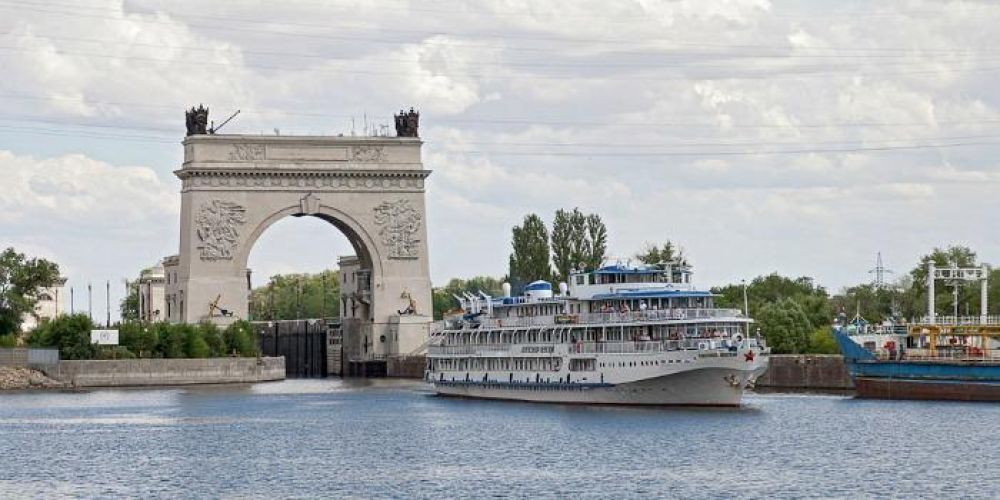

The Volga-Don Canal, a vital waterway in Russia, connects the Volga River with the Don River at their closest points. Its construction began in 1948 and was completed in 1952, during the Soviet era. The canal serves as a major part of the Unified Deep Water System of European Russia, allowing ships to travel from the Caspian Sea to the Sea of Azov and beyond, into the world's oceans.
During its construction, it was notable for the use of extensive labor from the GULAG prison camps, which is a part of its darker history. The canal is named after V.I. Lenin - full name being the Volga-Don Lenin Canal. Its infrastructure, including locks and bridges, is a showcase of engineering prowess, and it quickly became an important asset for domestic transportation and economic development.
The Canal's significance in tourism largely began in the post-Soviet era, when more open travel to Russia became available. While originally not intended for tourism, the canal's picturesque landscapes and historical significance attracted visitors from around Russia and across the world.
Initially, the region was more popular amongst domestic tourists, but international interest grew over time, especially among history buffs, engineering enthusiasts, and river cruise aficionados. The city of Volgograd, formerly known as Stalingrad, is a key tourist destination at one end of the canal, drawing visitors interested in World War II history and Soviet architecture.
The canal itself became a point of interest during cruises, as it showcases the potential of human engineering, and it allows for a unique perspective on the Russian landscape and life along the waterways.
In recent years, the tourism trend in Volgograd and along the Volga-Don Canal has seen a shift towards more sustainable and responsible travel practices. With growing awareness of environmental issues, tourists and tour operators alike are becoming more conscious of the ecological footprint of travel.
Another trend is the increase in experiential and cultural tourism. Visitors are not just passing through but engaging with local communities, experiencing traditional Russian food, music, and festivities that revolve around the canal. Such activities help in fostering a deeper understanding and appreciation of the area's unique culture and history.
River cruising has maintained its popularity, with modern vessels offering more comfort and luxury than ever before. Such cruises often include educational components, where experts discuss the canal's significance and its historical context.
In the digital age, tourism marketing for the Volga-Don Canal and Volgograd has become more sophisticated, with virtual tours and interactive online content helping to attract a more global audience, even those who might not be able to visit in person.